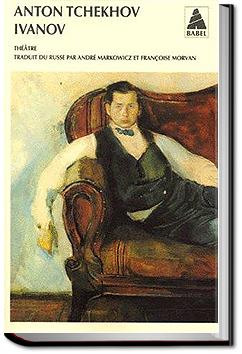
If the trip to Sakhalin did not yield a work of literary distinction, its personal (and eventual literary) significance for Chekhov was momentous.

But, in rendering the sufferings on this island of the damned, Chekhov could not achieve in three hundred pages what he achieved in a four-page passage at the end of his story “The Murder” (1895), about Sakhalin convicts in fetters waiting to load coal onto a steamer on a stormy night. Chekhov’s horror at the harshness and squalor of life in the colony, his contempt for the stupidity and callousness of the administration, and his pity for the convicts and settlers sometimes do break through the posture of scientific detachment. Chekhov tells it like it is, and allows his narrative to go where his mountain of information pushes it, which is all over the place, and ultimately nowhere.
#CHEKHOV A VISIT TO FRIENDS BOOK FULL#
In an autobiographical note that he wrote for a reunion of his medical-school class, Chekhov registered his awareness that “the principles of creative art do not always admit of full accord with scientific data death by poison cannot be represented on stage as it actually happens.” In the Sakhalin book, the conflict between science and art is almost always resolved in science’s favor. He cannot omit anything his narrative line is constantly being derailed by his data. Like a convict chained to a wheelbarrow (one of the punishments at Sakhalin), he drags along the burden of his demographic, geographic, agricultural, ethnographic, zoological, and botanical facts. His customary artist’s fearlessness gives way to a kind of humility, almost a servility, before the ideal of objectivity and the protocols of scientific methodology. It appears that even Chekhov, when writing as an academic, doesn’t write like Chekhov. (Chekhov even briefly considered submitting it to Moscow University’s medical school as a dissertation attesting to his qualifications to teach there.) Not surprisingly, therefore, “The Island of Sakhalin” is a worthy and often interesting work, but rarely a moving one, and never a brilliant one.

It was written not from memory but from file cards and scholarly books and reports, and conceived as a work of social and natural science rather than as a literary text. I must let the subject filter through my memory, until only what is important and typical in it remains in the filter.” But one of Chekhov’s works-“The Island of Sakhalin” (1895), a book reporting on a three-month visit to the prison colony of Sakhalin-forms an exception to the rule. In the winter of 1897, when the consumptive Anton Chekhov was living in Nice on doctor’s orders, he was asked by a Russian editor to write a story “on a subject taken from life abroad.” Chekhov declined, explaining, “I am able to write only from memory, I never write directly from observed life. “I’m ending up with something rather odd and much too original,” Chekhov said of his story “The Steppe.” Illustration by Riccardo Vecchio


 0 kommentar(er)
0 kommentar(er)
